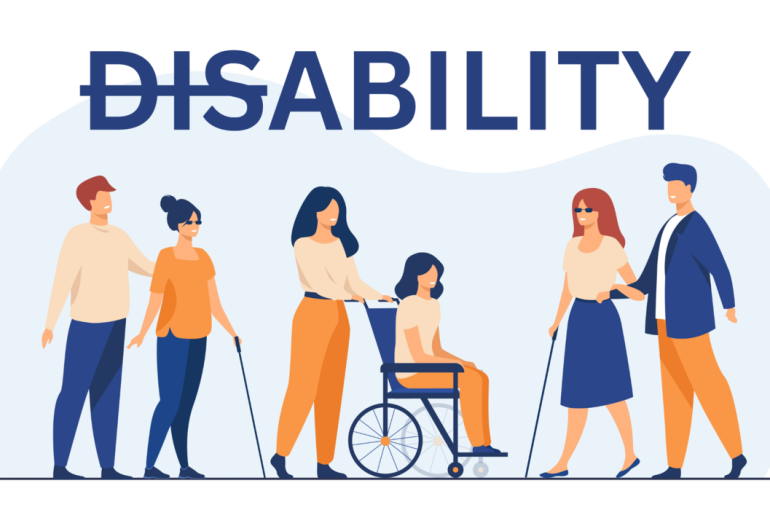SUPREME COURT MANDATES NATIONWIDE MONITORING AND REFORMS FOR STATE-RUN DISABILITY INSTITUTIONS

In an important decision in Public Interest Litigation (PIL), titled as Reena Banerjee & Anr v. Government of NCT of Delhi & Ors [Writ Petition (Civil) No. 116 of 1998], the Supreme Court of India has directed a number of essential reforms for the care, protection and rights of persons with cognitive disabilities in State and Private Institutions nationwide.
The Judgment, delivered on September 12, 2025, by Division Bench of Justices Vikram Nath and Sandeep Mehta, sets forth a robust framework for monitoring and transitioning towards inclusive, community-based care in consonance with constitutional and international obligations.
BACKGROUND OF THE CASE
The proceedings originated from two PILs. The first, a Writ Petition filed by Justice Sunanda Bhandare Foundation in 1998, sought full implementation of the Persons with Disabilities (Equal Opportunities, Protection of Rights and Full Participation) Act, 1995 (the “1995 Act”). The second, a Civil Appeal by Reena Banerjee, focused on the dire conditions and custodial deaths at Asha Kiran, a government-run home for persons with cognitive disabilities in New Delhi.
The Supreme Court, in previous orders, had highlighted chronic non-compliance with statutory mandates by many States and Union Territories. Despite clear directions for reservation, care standard and periodic reporting, the majority of authorities failed to submit adequate compliance details, revealing systemic lethargy and disregard for rights of persons with disabilities.
COURT’S ANALYSIS AND FINDING
- Social Model and Accessibility as Constitutional Mandate: The Court rejected the outdated medical model of disability, instead affirming a social model that recognizes disability as a legitimate facet of human diversity. Accessibility across physical, digital and procedural realms was classified as a fundamental constitutional principle, vital for meaningful exercise of rights.
- International and Indian Legal Framework: Citing the UN Convention on the Rights of Persons with Disabilities (UNCRPD) and other international treaties, the Judgment underscores India’s legal duties to guarantee autonomy, dignity and community living for persons with disabilities.
- Expert Panel Recommendation: Drawing on a detailed report from an Advisory Group Expert Panel, the Apex Court endorsed recommendations for regular medical screenings, dietary personalization, staff training, individual care plans, access to education and vocational opportunities, grievance redressal and participatory governance in care institutions.
- Project ability empowerment: To ensure effective oversight, the Supreme Court instituted the “Project Ability Empowerment”, a comprehensive, time-bound monitoring initiative involving eight National Law Universities (NLUs) covering all regions. These institutions, with designated experts, must audit and report on resident profiling, healthcare, education, infrastructure accessibility, staffing, record-keeping and compliance with legal standards.
- Reservation and upward movement of PWDs: Addressing persistent discrimination in public employment, the judgment mandated that reservation policies under Section 34 of the India’s Rights of Persons with Disabilities Act, 2016 (RPwD Act) must offer meritorious candidates with disabilities upward migration to unreserved categories. This ensures that reserved seats remain accessible for those facing compounded barriers of disability and deprivation.
DIRECTIONS OF THE COURT
- Eight identified NLUs (Bangalore, Delhi, Punjab, Kolkata, Assam, Lucknow, Mumbai and Jodhpur) have been tasked to commence monitoring within four weeks. A detailed consolidated report is to be submitted within six months, presenting actionable recommendations for transition to community-based accommodation and improvements in institutional practices.
- Union and State Departments of Social Justice and Welfare are directed to provide full logistical and financial support, with ₹25 lakhs in interim funding for each NLU.
- All District Magistrates, Legal Services Authorities, and State Commissioners for Persons with Disabilities must fully cooperate, appoint nodal officers, and ensure access to all relevant data and facilities.
- The Ministry of Social Justice and Empowerment shall coordinate, and all expenses for monitoring shall be equally borne by the Union and State Governments.
- The Union of India must clarify measures for upward movement in reservation by October 14, 2025.
- The Judgment is to be communicated to all key authorities for immediate compliance, with the case listed for further review in March 2026.
KEY TAKEAWAYS FROM THE JUDGEMENT
- Disability rights in India are anchored not only in statutory law but as core constitutional guarantees, requiring accessibility and inclusion in every domain of life.
- Practical implementation and ongoing oversight of care institutions are mandated, with participation from expert panels and legal academics to ensure rigorous, evidence-based reforms.
- Reservation benefits must extend fully to persons with disabilities, removing barriers to merit-based advancement and securing posts for the most disadvantaged candidates.
- Participatory approaches, individualized care and periodic reporting will foster dignity, autonomy and community integration.
CONCLUSION
The Supreme Court’s expansive verdict signals a decisive shift in disability jurisprudence, compelling India’s executive and institutional apparatus to actively and urgently uphold the rights, protection, and dignity of persons with disabilities. By establishing enforceable frameworks for monitoring, inclusive policies, and affirmative action, the Judgment seeks to close the gap between the constitutional promise and the lived reality for millions who had previously remained invisible in institutional care. The directions stand as a powerful testament to the ongoing transformation in law, policy and society, towards full equality and participation for all.
Soumen Dash
(Legal Associate)
The Indian Lawyer & Allied Services
Please log onto our YouTube channel, The Indian Lawyer Legal Tips, to learn about various aspects of the law. Our latest Video, titled Legal Aspects of Export in India| Export Laws Explained|Advocate Sushila Ram Varma | can be viewed at the link below:
https://youtu.be/2PWPKz1yr-E?si=6tpqGOCC-fNdbh7D





































Leave a Reply